Are you ready to build your future?
Looking for an inspiring work environment and challenging job? Read more about our vacancies, the colleagues you’d be joining and the application process using the button below. Join 4PS today!


Running a construction company is more than just laying bricks or putting up scaffolds: it’s about managing the numerous contracts, stakeholders, invoices, and more. Companies must prioritise these client relationships from the first outreach to the final project handover
Running a construction company is more than just laying bricks or putting up scaffolds: it’s about managing the numerous contracts, stakeholders, invoices, and more. Companies must prioritise these client relationships from the first outreach to the final project handover. Doing so not only gives the company a reputation for excellence, but also nurtures long-term relationships and safeguards repeat business.
The issue is managing all of these aspects can be a real headache. Customer relationship management (CRM) software is one potential solution. It centralises all the roles and responsibilities required by construction companies into one location, handling everything from tracking leads to storing client communications.
In this guide:
Customer Relationship Management (CRM) systems are increasingly vital in the construction industry, serving as a cornerstone for managing interactions with current and prospective clients and streamlining project management processes.
What is a CRM? Broadly speaking, it’s a piece of software that manages all your company’s relationships and interactions with current and potential customers. The goal is simple: improve business relationships.
Some common features of a CRM system for construction include:
Given that construction companies might have dozens of different clients, a similar number of vendors, and hundreds of employees, keeping track of all these communications across every stage in the journey is crucial.
Why bother investing in construction CRM software? After all, most of the features can be replicated by other services and manual systems. The problem? Well, trying to manage your client relationships over email, text, and phone calls across dozens of different stakeholders can be a recipe for disaster.
In contrast, construction CRM software avoids these pitfalls and problems by bringing everything together in one seamless place. It’s a specially designed system that can handle almost every issue in the construction sector.
The benefits:
What does your customer want? What are their expectations? The answer comes from listening. CRM system features like lead management and project tracking avoid any confusion. If a customer requests a specific change via email, the system tracks what they want. Then, anybody who comes after will see the same information – rather than having to dig through long email chains to find the original message.
Indeed, that’s where the CRM excels. It reduces the risk of human error and misunderstandings, bringing everyone onto the same page. Furthermore, this level of clarity and organisation enhances customer satisfaction as it ensures their needs are met precisely and efficiently.
It’s often said that it costs far more to acquire a new customer than to keep the old one. That’s especially true in the construction sector, where acquiring a new client could involve months of meetings and back-and-forth conversations. It’s far simpler to keep your loyal customers happy and satisfied with your work.
The question is, how.
Construction CRM software isn’t just about accurate communications. Customers can log in to the system to see project documents, monitor updates, and receive replies to questions. Everything from the budget to vendor contracts is available, ensuring that clients don’t become frustrated by an unclear process. Instead, you maintain complete transparency, building a level of trust that can last for years to come.
As mentioned, every communication you have with clients is stored and logged within the CRM system. With all client information centralised, you reduce the need to rely on other systems. The result? Streamline operations and reduce confusion.
This redundancy of data entry and greater access to client communications reduce the overall workload of your team. No more digging into email chains. No more missed communications. No more manual data entry. You can then use your team more effectively, managing deadlines, budgets, and resources.
With detailed records of past client interactions at your fingertips, you can deliver highly personalised customer service. Utilising this data, CRM systems enable you to tailor communications, proposals, and project recommendations directly to each client’s specific preferences and history. This level of customisation not only makes clients feel uniquely valued but also boosts the likelihood of repeat business and positive referrals, significantly enhancing customer loyalty and satisfaction.
Transforming a lead into a loyal customer takes time and effort. It’s a lot easier when you can monitor every stage of the process, determining which prospective client is most likely to convert. The best CRM systems for construction companies integrate lead management tools, such as lead tracking, customer journey mapping, and advanced analytics, to forecast sales trends and conversion rates.
4PS Construct’s CRM system, for example, covers the entire sales pipeline. You can see precisely where you are in the pipeline, closing deals faster and with less effort. With a more organised approach, you can provide personalised responses to each lead, understanding where your leads are coming from and what they’re looking for.
Learn more about our construction CRM software and how it can benefit your business. We also offer a free demo of the platform – book your demo today.
Looking for an inspiring work environment and challenging job? Read more about our vacancies, the colleagues you’d be joining and the application process using the button below. Join 4PS today!
Please fill in your name and E-mail to download this file.